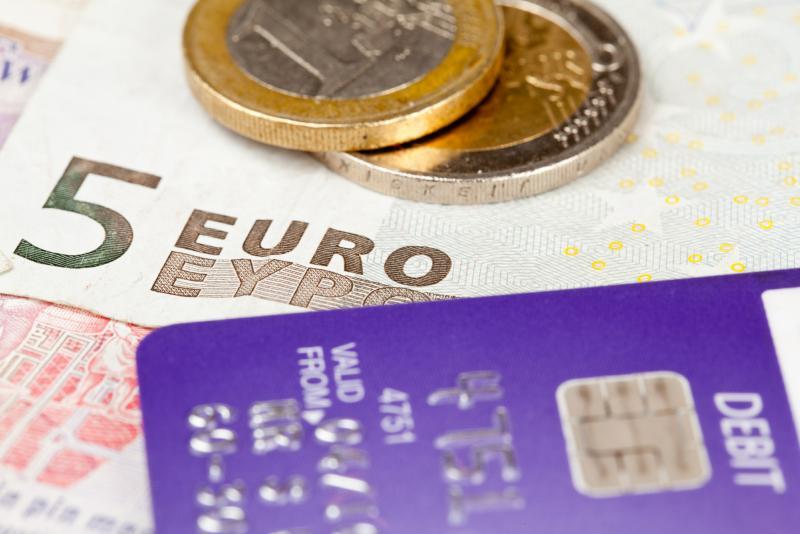 With the heads of Germany and the European Central Bank getting along about as well as Obama and the Tea Party, the European Union is moving quickly towards total political failure. Weeks of disagreement by Europe’s political and financial leaders have let the crisis move far ahead of their discussions.Last week Italy was dragged into the morass when yields on Italian treasury bonds popped above 6%. According to Goldman Sachs analysis, Italy cannot service their debt should yields reach 7%, potentially escalating the European debt crisis to full meltdown.
With the heads of Germany and the European Central Bank getting along about as well as Obama and the Tea Party, the European Union is moving quickly towards total political failure. Weeks of disagreement by Europe’s political and financial leaders have let the crisis move far ahead of their discussions.Last week Italy was dragged into the morass when yields on Italian treasury bonds popped above 6%. According to Goldman Sachs analysis, Italy cannot service their debt should yields reach 7%, potentially escalating the European debt crisis to full meltdown.
Austerity packages aren’t going to fix that problem (they might even make it worse by slowing economic growth). Italy needs either a way to grow faster — by ditching the euro and devaluing a revived lira— or pay lower interest rates —by financing some of its debt through Eurozone bonds.
The steep climb in Italian yields is an indication that financial markets have begun to focus on the need for a more far-reaching restructuring of the euro system. Neither of those items appears to be on the agenda for Thursday’s “non-emergency” summit. European leaders still seem to believe that they can “solve” the crisis by kicking the Greek debt problem down the road into 2014, A more accurate metaphor would be rolling the Greek snowball down the mountain, as the problem continues to get bigger as they balk at a real solution.
I think this all means that any relief rally from a new Greek debt package is likely to be short-lived and we will be living this deja vu once again. With Greece able to finance its debts through late August, thanks to a $17 billion payment from the first rescue package, the stalemate could extend into September. Sound a bit familiar? With the U.S. facing a debt ceiling deadline of August 2 it appears the dollar and the euro may take turns as the weakest currency on the planet for at least the next couple of months.
How to invest the meltdown
The question most investors are asking though has l ittle to do with the best solution (i.e. the ECB issuing Eurozone bonds backed by the EU so there is common debt to go along with a common currency). Most investors are wondering how to protect their life savings or perhaps even make a little money while the politicians manufacture solutions to the problems they created.
ittle to do with the best solution (i.e. the ECB issuing Eurozone bonds backed by the EU so there is common debt to go along with a common currency). Most investors are wondering how to protect their life savings or perhaps even make a little money while the politicians manufacture solutions to the problems they created.
Beyond what should be obvious by now, gold and silver will most likely be profitable safe havens during the currency turmoil. Shorting large banks is working and will likely continue until such day that real solutions to sovereign debt are found. At that point we can go back to worrying about the banks “assets,” especially those burdensome mortgage loans that just won’t go away. In the meantime, I believe the TIPS of non-Euro and non-US governments might be profitable as even controlled inflation produces reasonable yields in appreciating currencies.
But the crisis promises to ebb and flow as politicians on each side of the Atlantic prove more inept than their counterparts in handling their respective debts. European ineptness causes some dollar strengthening, hurting most stocks and commodities, while America’s politicians seem only capable of tactics, but no strategy, leaving the markets to daily, decide who is most inept.
Here at home most investors are trying to find a place to hideout or at least add some protection to their current portfolio. Should you hold dollars knowing that they buy a little less each day or will the stock market or US treasuries be a better place?
Though I don’t believe you should completely sell out of this market, I would encourage most investors to keep some cash ready for buying opportunities created by a delayed agreement in Washington. It is the type of cash that matters right now. It makes sense to own some dollars, maybe 25% of your cash, but then consider a mix of Chinese renminbi, Swedish krona, Swiss francs, Brazilian reals, and Australian dollars for the rest of your cash position.
Consider the fact that the euro and the dollar are losing value and the faith in each is diminishing, making gold the real currency. As such, I think it is appropriate to own gold in your investment accounts and to own some gold and silver coins as insurance against a currency meltdown. I do not believe we will get to that point but I carry fire insurance on my house and the odds are heavily weighted against a fire. Personally, I buy and recommend owning some one ounce gold eagles and silver eagles. These are not the collectible coins, but are widely recognized as containing one ounce of the respective metal. Should we ever experience a currency meltdown, you can use gold and silver coins to buy food and other necessities.
Once you have your precious metals and cash as anchors for your portfolio, you may consider adding some floating rate notes of major corporations or some TIPS from emerging markets. An easy way to get exposure to these is through the iShares ETF (ticker symbol is FLOT) and the WisdomTree ETF (RRF & WDTI).
I expect all of these can add some stability to your portfolio during this government induced mayhem without costing you once the clouds disappear. Remember, most multinational companies are very profitable and are flush with cash. Once agreement is made in Washington, we are likely to see a very strong and positive reaction in the markets.
Looking forward to analyzing companies and markets again,
Frank
Disclosure: Nothing contained herein is to be considered a solicitation, research material, an investment recommendation or advice of any kind. The information contained herein may contain information that is subject to change without notice. Any investments or strategies referenced herein do not take into account the investment objectives, financial situation or particular needs of any specific person. Product suitability must be independently determined for each individual investor. Frank Beck & Beck Capital Management explicitly disclaims any responsibility for product suitability or suitability determinations related to individual investors. The investment products discussed herein are considered complex investment products. Such products contain unique risks, terms, conditions and fees specific to each offering. Depending upon the particular product, risks include, but are not limited to, issuer credit risk, liquidity risk, market risk, the performance of an underlying derivative financial instrument, formula or strategy. Return of principal is not guaranteed above FDIC insurance limits and is subject to the creditworthiness of the issuer. You should not purchase an investment product or make an investment recommendation to a customer until you have read the specific offering documentation and understand the specific investment terms and risks of such investment.
This material represents an assessment of the market and economic environment at a specific point in time and is not intended to be a forecast of future events, or a guarantee of future results. Forward-looking statements are subject to certain risks and uncertainties. Actual results, performance, or achievements may differ materially from those expressed or implied. Information is based on data gathered from what we believe are reliable sources. It is not guaranteed as to accuracy, does not purport to be complete and is not intended to be used as a primary basis for investment decisions. It should also not be construed as advice meeting the particular investment needs of any investor. Past performance does not guarantee future results.

